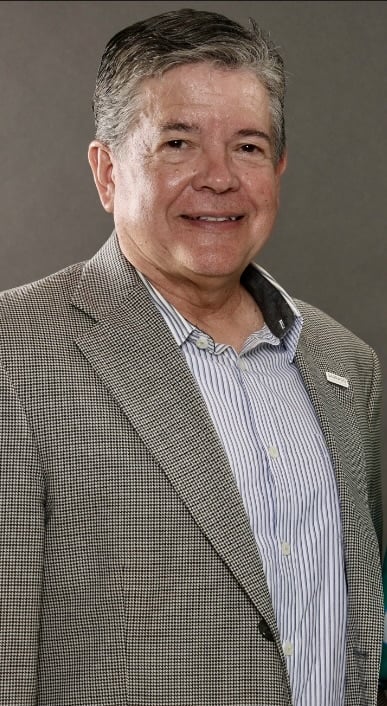Read the opinion column of Dennis Román, our dean of the Department of Business Administration.

By Dennis R. Román-Roa
As a society we have the challenge of preparing talent for the economic and social development that comes with a world in constant evolution. Technological advances, demographic changes and new ways of working demand a generation of professionals with adapted skills and competencies to overcome the challenges of the future. To meet this goal, those of us who develop talents must rethink approaches and adapt programs, methodologies and systems to a new reality. This must be a work that supports all efforts to develop the country plan that our island pursues. How to address this goal is still a matter of debate. Should educational institutions adjust to the particular interests of the new strain of talent or should the emphasis be on what the country needs for its development? This new generation works while studying, and seeks flexible and fast options to their educational needs. Is that the right thing to do? Possibly the answer lies at some point, which in many cases is still unspecified. Undoubtedly, it would seem that we are trying to develop talent for a future world that we still do not know. A labor and business panorama where it is anticipated that many categories of jobs and trades could disappear due to the accelerated development of certain technologies.
Fortunately, we have learned a few things that can guide us and have enough evidence not to overlook. Firstly, educational institutions must not ignore the development of specific skills and competences of great importance for the development of advanced societies. These skills include problem-solving, critical thinking, communication skills, teamwork, adaptability, continuous learning, creativity, leadership, and digital competence.
The future of work will require professionals capable of navigating between different disciplines and fields of knowledge. Therefore, talent development should encourage, in addition to soft skills, multidisciplinary professional development that promotes collaboration between different areas and disciplines. In this way, a variety of knowledge can be integrated into new ventures and solutions to challenges that we have not yet been able to define.
The role of technology is fundamental in the future of the workplace and our societies, so it is essential that the use of emerging tools and technologies are incorporated. Every school should promote digital literacy and teach students how to use technologies ethically and responsibly, regardless of the area of study. To prepare students for an uncertain future of work, schools must offer flexible academic programs and learning options. Flexibility in educational provision will allow students to adapt to changing labour market demands and develop skills relevant to their life. These are times of continuous learning.
Much evidence accumulates in relation to entrepreneurship and innovation. Increasingly, it is confirmed that they will be key aspects in future economic development, so they should continue to be fostered among students. How to connect theory and practice must be at the center of educational agendas to amplify the impact of what has been learned. You will need to maintain close relationships with employers and alumni to keep abreast of market trends, and ensure that your academic programs adjust to development needs more quickly. Given this, the ecosystem of work and entrepreneurship must be inclusive and equitable so that everyone has equal opportunities. Likewise, we must promote ethics and social responsibility, because the future of work will require professionals committed to the well-being of society and the planet.
Our educational centers, without a doubt, face challenges like never before. Those who work with education have a fundamental role in preparing the workforce of the future and our formation as human beings. It is not one discipline over another. To meet this challenge, we must examine the evidence and set priorities. All this calls to adapt academic programs and teaching methods, promote skills and competencies appropriate to these times. By acting now, we will contribute to the development of highly qualified, adaptable, never obsolete citizens, capable of facing new challenges and committed to the economic and social well-being of our homeland and the world.

Meet the Author
Dr. Román Roa, who has more than 30 years of professional experience, holds a PhD in Business Development and Management, a Juris Doctor, a Master’s Degree in Business Administration and a Bachelor’s Degree in Chemical Engineering.
Our Department of Business Administration are trained professionals to developed and make a difference in the business world, learn more: www.sagrado.edu/administracion-de-empresas/.